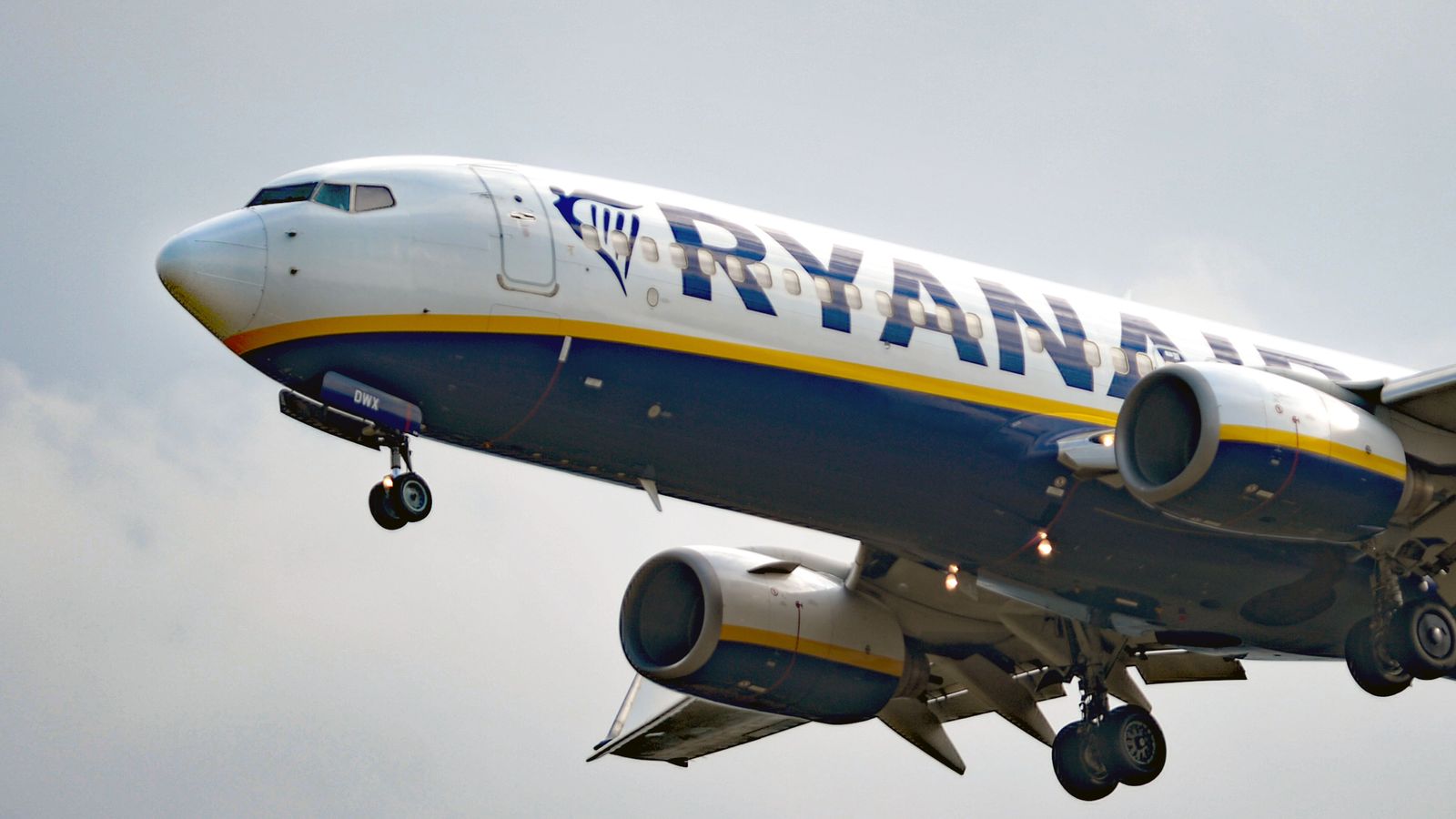Fully vaccinated travellers from the EU and the US will be able to avoid quarantining when they arrive in England from next Monday, the government has confirmed.
Transport Secretary Grant Shapps has also announced the resumption of international cruises.
The change regarding US and EU arrivals come into force from 4am on 2 August.
Live COVID updates from UK and around the world
The announcement came after a COVID Operations meeting, which was attended by senior cabinet ministers.
Mr Shapps said on Twitter: “We’re helping reunite people living in the US and European countries with their family and friends in the UK.
“From 2nd August at 4am people from these countries will be able to come to the England from an amber country without having to quarantine if they’re fully vaxxed.
“The changes will apply to fully vaxxed people with an FDA or EMA vaccine – they’ll still need to do the usual pre-departure test before arrival and take a PCR test on day 2 of returning to the England.
“We’re also able to confirm the restart of international cruises and flexible testing programmes to help key workers and drive our economic recovery. Whether you’re a family or a business, this is progress we can all enjoy.”
Currently, those arriving in the UK from amber list locations – which includes the US and much of the EU – must have had both doses of a coronavirus jab as part of the UK’s own vaccination programme to avoid the requirement to self-isolate for 10 days.
The government had previously committed to a review of international travel rules by the end of this month.
Ministers said a recent 10-day pilot scheme proved that the COVID vaccination status of travellers from amber list countries could be efficiently and accurately checked away from the border.
But a senior Labour minister described the move as “reckless”.
The latest quarantine rule change comes as the government was facing mounting pressure from the aviation industry to exempt double-jabbed American and European travellers.
Earlier, British Airways, Virgin Atlantic and Heathrow claimed a recent trial demonstrated how international travel can safely be opened up further.
Speaking to Kay Burley, Work and Pensions Secretary Therese Coffey confirmed that discussions were ongoing between the US and the UK on easing restrictions.
“I have to say no decision has been made. Ministers will be meeting to discuss, go through the data, but this was discussed between the president of the United States and the prime minister during the G7 so it should be no surprise if we are looking at ways at how we can facilitate travel but candidly,” Ms Coffey told Sky News.
“The most important thing is to make sure our borders are safe, that the public in the UK are safe and that we don’t waste the sacrifice the British public have made.”
And Prime Minister Boris Johnson added that he wants American citizens to be able to come to Britain “freely” as they did before the pandemic.
But deputy leader of the Labour Party Angela Rayner said she was “very concerned” at the prospect of easing quarantine restrictions for more travellers.
“We know that the Delta variant came into this country and delayed the lifting of some of the restrictions and caused infections here,” she told Kay Burley on Sky News.
“We need to make sure that we have got a proper data-driven analysis and that we look at an international passport for vaccines.
“And we also know that people who have had the vaccine of course can still get the virus so a testing regime is very important and crucial as well.
“So I am very concerned about the government’s announcement via the press this morning.”
Under the pilot scheme held by British Airways, Virgin Atlantic and Heathrow Airport, around 250 fully-vaccinated passengers on selected flights from New York, Los Angeles, Jamaica and Athens earlier this month presented their COVID status using paper or digital formats before boarding a plane.
Some 99% of their documents were verified as authentic, with just two passengers’ credentials rejected.
In one case there was a discrepancy between the name on their vaccine card and the name on their passport, while another involved someone who had been fully-vaccinated less than 14 days before travel.












